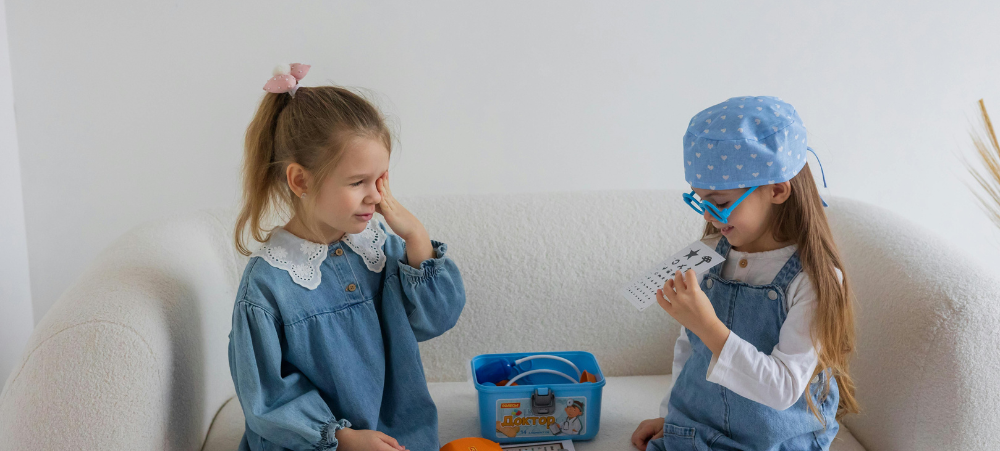Children learn best when they’re engaged, curious, and having fun. For parents, this is great news—it means you don’t need to rely solely on worksheets or structured lessons to encourage growth and development. Everyday play can be a powerful way to teach new skills, build confidence, and strengthen your bond with your child, all without stress or tears.
1. Pretend Play for Social Skills
Whether your child is running a pretend restaurant, playing house, or setting up a doctor’s office with dolls, pretend play builds empathy, problem-solving, and communication. Kids learn to take turns, negotiate, and explore different perspectives.
2. Building and Construction for Problem-Solving
Blocks, LEGO, or even cardboard boxes help kids practice spatial awareness, creativity, and patience. As they test and rebuild structures, they also learn resilience and perseverance when things don’t go as planned.
3. Art and Craft for Creativity and Fine Motor Skills
Painting, drawing, cutting, and gluing might feel like “just fun,” but they develop hand-eye coordination and encourage self-expression. Kids also learn that mistakes can turn into new ideas, an important life lesson in flexibility.
4. Music and Rhythm for Memory and Language
Singing songs, clapping to rhythms, or making simple instruments introduces patterns, boosts memory, and strengthens language development. Music also provides a joyful way to connect and release energy.
5. Outdoor Play for Exploration and Confidence
Climbing, running, and exploring nature provide physical exercise while sparking curiosity about the world. Collecting leaves, spotting insects, or building sandcastles all support observation skills and a love for learning.
6. Games for Math and Literacy Skills
Board games, card games, and puzzles help kids practice counting, matching, and critical thinking. Even simple games like “I Spy” or word hunts can sneak in literacy practice while keeping the atmosphere lighthearted.
7. Cooking Together for Practical Learning
Measuring flour, mixing batter, or reading a recipe teaches math, sequencing, and teamwork. Plus, kids feel proud of contributing to family meals, building confidence along the way.
Learning doesn’t have to be a struggle. By turning everyday moments into opportunities for play, children gain essential skills while parents enjoy quality time free from stress and resistance.
Sources
Harvard Graduate School of Education – The Importance of Play in Learning
American Academy of Pediatrics – The Power of Play
Child Development Institute – Play and Child Development
We understand that there are many aspects that encompass a Mother, Father or Child and strive toward providing resources and services that accommodates this.
Our content is aimed to inform and educate families on issues starting from pregnancy through to the challenges of the teen-age years.
- Say Hello to the Ultimate Holiday Brunch Bite - December 17, 2025
- Tiny Toons Looniversity Returns: Meet the Voice Behind Plucky and Hamton! - December 12, 2025
- From Pain to Possibility: Panado®’s New Marketing Campaign, Highlights The Joy Of Pain Relief - December 10, 2025





